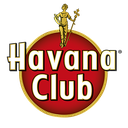Executive Secretary

XIII International Conference on Business Studies
CICE 2025
XI International Workshop on Hospitality and Tourism (HOTELTUR, 2025)
Abstract
The study responds to the growing demand for responsible tourism and the urgent need to reduce the environmental impact of the hotel sector, focusing on sustainable mixology at the "La Alborada" bar at the Hotel América. The main problems identified were the high level of waste in traditional bars and the lack of local studies on sustainable cocktail practices. The research explored how this bar can integrate sustainable practices—from ingredient selection to waste management—to reduce its environmental footprint and improve its competitiveness.
The objective was to evaluate the bar's current practices and propose improvements aligned with international standards. Theoretical methods (analytical-synthetic, historical-logical, inductive-deductive) and empirical methods (staff interviews, process observation, and documentary analysis) were applied. Among the findings, it was highlighted that 40% of the ingredients used are local (fruits and herbs), and that recycling techniques such as the use of peels for garnish are used, although systematic carbon footprint measurement is lacking.
By comparing with international benchmarks such as White Lyan (London), opportunities were identified to implement a sustainability seal and create 100% circular signature cocktails. It was concluded that "La Alborada" has the potential to position itself as a leader in sustainable mixology, provided it adopts measures such as circular economy training, establishing partnerships with local producers, and effectively communicating its efforts to customers.
Resumen
El estudio responde a la creciente demanda de turismo responsable y la urgencia de reducir el impacto ambiental del sector hotelero, enfocándose en la mixología sostenible en el bar “La Alborada” del Hotel América. Se identificó como problema principal el alto nivel de desperdicio en bares tradicionales y la ausencia de estudios locales sobre prácticas sostenibles en coctelería. La investigación planteó cómo este bar puede integrar prácticas sostenibles —desde la selección de insumos hasta la gestión de residuos— para reducir su huella ambiental y mejorar su competitividad.
El objetivo fue evaluar las prácticas actuales del bar y proponer mejoras alineadas con estándares internacionales. Se aplicaron métodos teóricos (analítico-sintético, histórico-lógico, inductivo-deductivo) y empíricos (entrevistas al personal, observación de procesos y análisis documental). Entre los hallazgos, se destacó que un 40% de los ingredientes utilizados son locales (frutas y hierbas), se aplican técnicas de reutilización como el uso de cáscaras para decoraciones, aunque se carece de una medición sistemática de la huella de carbono.
Al comparar con referentes internacionales como White Lyan (Londres), se identificaron oportunidades para implementar un sello de sostenibilidad y crear cócteles insignia 100 % circulares. Se concluyó que “La Alborada” tiene potencial para posicionarse como líder en mixología sostenible, siempre que adopte medidas como capacitación en economía circular, establecimiento de alianzas con productores locales y una comunicación efectiva de sus esfuerzos hacia el cliente.
About The Speaker

Yohanna González Alvarez

Discussion
 Gold
Gold

 Gold
Gold
 Silver
Silver